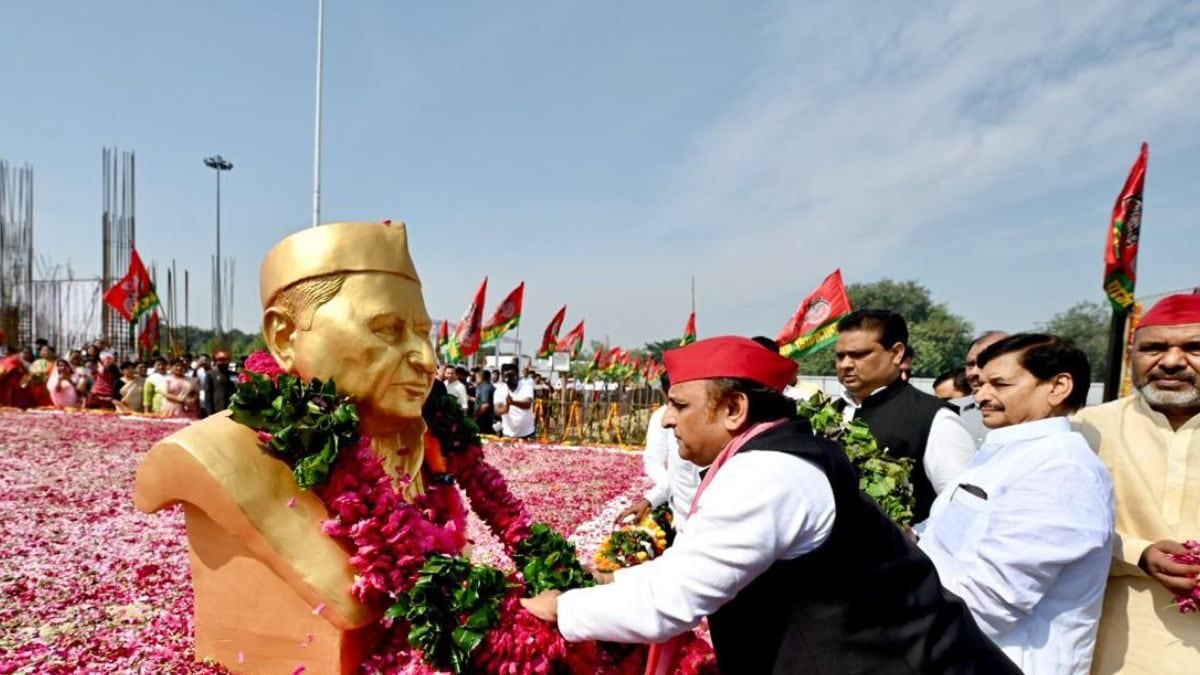The Jayaprakash Narayan Interpretation Centre (JPNIC), a grand project conceived under the Samajwadi Party (SP) government in Uttar Pradesh, stands as a monument to political neglect and wasted resources. Intended to be a world-class cultural hub, the Rs 800 crore edifice on the banks of the Gomti River in Lucknow now lies abandoned and dilapidated, its opulent amenities succumbing to the ravages of time and neglect.
A Political Pawn in the Game of Power
The JPNIC’s fate has become entangled in the ongoing political rivalry between the SP and the Bharatiya Janata Party (BJP). The BJP government, which took power in 2017, has been accused by the SP of deliberately hindering the project’s completion, allegedly to undermine the socialist ideals of Jayaprakash Narayan. The SP, in turn, claims the BJP is seeking to privatize the JPNIC.
The SP’s Accusations
Akhilesh Yadav, the SP chief, has repeatedly denounced the BJP’s alleged efforts to stifle the JPNIC. He has pointed to the presence of barricades and tin sheets erected outside the JPNIC, preventing him and his party members from reaching the statue of Jayaprakash Narayan on his birth anniversary. Yadav claims that the BJP is deliberately trying to prevent people from understanding the principles of socialism, a claim refuted by the BJP.
The BJP’s Retaliation
The BJP, on the other hand, dismisses the SP’s accusations as mere political theatrics. They counter that the JPNIC project was riddled with irregularities during its construction under the SP government and that an ongoing inquiry into these allegations necessitates a delay in completion. The BJP further claims that the SP’s actions are politically motivated and that the party’s interest lies solely in garnering public attention rather than paying genuine tribute to Jayaprakash Narayan.
A Grand Vision, a Crumbling Reality
The JPNIC was envisioned as a multifaceted complex, spanning 18.6 acres and comprising a museum dedicated to the life and work of Jayaprakash Narayan, a luxury hotel with 107 rooms, a convention hall, a swimming pool, a car park, and even a helipad. The ambition behind this project is palpable, reflecting a commitment to promoting Narayan’s ideals and fostering a vibrant cultural environment.
A Monument to Neglect
However, the project’s completion has stalled, leaving the magnificent structure unfinished and abandoned. The JPNIC has become a poignant symbol of political discord and a squandered opportunity to honor a prominent figure in Indian history. Its sprawling grounds now harbor weeds and drug addicts, a far cry from its intended grandeur.
A Wastage of Public Funds
The JPNIC’s fate serves as a reminder of the devastating consequences of political maneuvering and the squandering of public funds. While both sides of the political spectrum engage in blame games, the JPNIC remains a tragic testament to their inability to prioritize the public good over personal interests.
A Story of Lost Potential
The Jayaprakash Narayan Interpretation Centre, once envisioned as a monument to a revolutionary leader and a hub for cultural and intellectual engagement, now lies in a state of disrepair, symbolizing the decline of public projects amidst political battles. The JPNIC’s abandonment serves as a stark warning about the consequences of prioritizing political agendas over the needs of the people.
Takeaways
- Political maneuverings often take precedence over public interest, resulting in neglected and incomplete projects.
- The JPNIC’s fate showcases how grandiose dreams can turn into symbols of political squabbles, leaving taxpayers burdened.
- The ongoing conflict between the SP and the BJP raises questions about the true intention of both parties regarding honoring historical figures and promoting social ideals.
- The JPNIC stands as a stark reminder of the importance of constructive political discourse and prioritizing public projects over political point-scoring.




